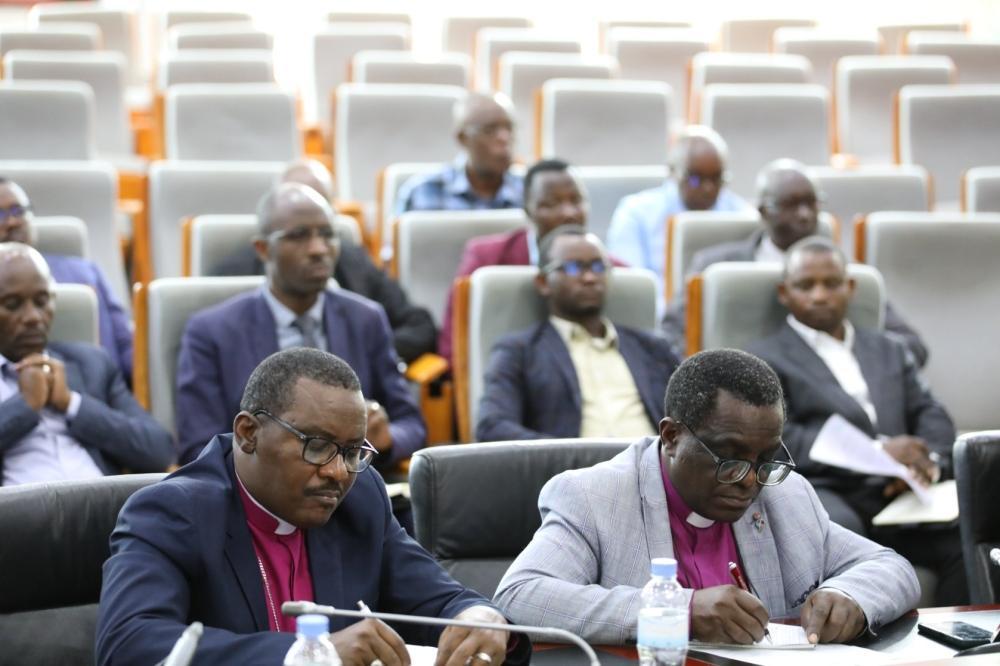Africa-Press – Rwanda. Rwanda Governance Board (RGB) and the Financial Intelligence Centre (FIC) have called on faith-based organisations (FBOs) to strengthen their safeguards against money laundering, and terrorism financing.
The call was made during a high-level awareness session held on Tuesday, September 17, as part of efforts to implement the National Anti-Money Laundering, Counter-Terrorism Financing, and Counter-Proliferation Financing (AML/CFT/CFP) Policy 2025–2029.
The policy aims to protect Rwanda’s financial system while empowering non-profit organisations (NPOs) to remain credible and resilient.
RGB Chief Executive Officer Doris Picard Uwicyeza stressed that the safeguards are not meant to target faith-based institutions but to shield them from exploitation.
“Faith-based organisations are highly trusted by the public. That trust is powerful, but it can also be exploited by wrongdoers or terrorist groups,” she said.
She acknowledged that many FBOs already have good governance and financial management systems in place but warned that risks persist, particularly because of cash-based transactions and cross-border donations.
Uwicyeza urged FBOs to “adopt a risk-based approach to financial transactions, strengthen accountability and reporting mechanisms, and regularly participate in capacity-building workshops.”
She added that RGB and FIC will continue working closely with faith-based institutions by providing training and tools to help them comply with national and international standards.
“This policy is not meant to restrict non-profit organisations,” Uwicyeza said. “It is meant to empower them, preserve public trust, and ensure that their mission of serving communities is never undermined by criminal activity.
“This exercise is about putting in place control mechanisms and making religious leaders aware of these risks so they can strengthen or establish systems that keep their institutions safe.”
Oswald Christian Iyabuze, Compliance Specialist at FIC, warned that Rwanda’s context demands vigilance.
“Our country is stable, but we are in a region with many terrorist and armed groups. If we are not alert, wrongdoers could infiltrate our organisations and use them to plan or finance criminal activities,” he said.
He reminded participants that terrorism financing goes beyond giving money. “Providing shelter, transport, food, or even a meeting space to terrorists counts as support. These are serious crimes under our laws, and anyone involved must be prosecuted.”
Iyabuze also highlighted the risk of unknowingly engaging with suppliers linked to the production of weapons of mass destruction, stressing the importance of due diligence in procurement.
He said faith-based organisations face high risks of terrorism and urged them to vet partners, formalise agreements with sponsors, and be cautious with those unwilling to sign contracts.
Opportunity for faith leaders to learn and act.
“This training was extremely important because it helps us identify gaps and ensure churches never become safe havens for criminal activities,” said Rev. Bienvenue Musabyimana of the Presbyterian Church in Rwanda.
He noted that his church already has strict financial controls in place, including depositing all contributions into a bank account, maintaining proper records, and undergoing regular financial audits.
“These measures build trust and protect our congregations from being exploited by individuals with hidden agendas.”
For More News And Analysis About Rwanda Follow Africa-Press






